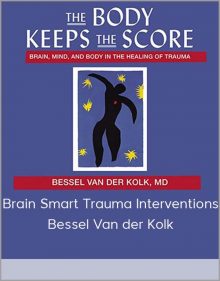
Leigh Odom – Problem-Solving Challenging Behaviors In Dementia
$199.99 Original price was: $199.99.$59.00Current price is: $59.00.
This recording has been designed specifically for you, the frontline dementia care professional who is providing the best care possible to dementia patients living with moderate-severe stages.
Author: Leigh Odom
- Description
- More Products
Description
Description
Leigh Odom – Problem-Solving Challenging Behaviors In Dementia: Person-Centered & Non-Pharmacologic Intervention Plans You Can Use The Next Day!

This recording has been designed specifically for you, the frontline dementia care professional who is providing the best care possible to dementia patients living with moderate-severe stages. They display complex and challenging behaviors, like agitation, hitting, screaming, wandering, delusion, resistance and withdrawal.
Persons with dementia need increasing support that is provided in a way that communicates friendship, compassion and dignity. However, those of us in a support role experience first-hand the frustration, disappointment and even anger that accompanies the day-to-day responsibilities of dementia caregiving – often leading to burnout due to emotional exhaustion, depersonalization of patients and feelings of failure. That is not the personal level of care you sought to give others while in school.
Avoid the real potential consequence of failed behavior management in your dementia care – join Leigh Odom, Ph.D., CCC-SLP, CDP, CADDCT and learn evidence-based non-pharmacologic treatments and person-centered strategies to minimize the effects of dementia behaviors. Watch and come away with:
- A systematic approach to developing individualized behavior plans that are more likely to work the first time
- Methods to accurately identify common causes and manifestations of challenging behaviors
- Management strategies to directly target the trigger causing the undesired behavior
- Communication strategies to use with persons with dementia as a behavior management strategy
- Strategies to manage the potential consequences of compassion fatigue and burnout
Developing person-centered behavior plans in dementia care results in higher quality care, increased quality of life for the patient and decreased provider burnout. For your benefit and that of your patients, register today and get the dementia care training to be a better problem-solver!
- Describe potential antecedents to complex and challenging behaviors common to dementia.
- Distinguish between the dementia-related behaviors that warrant a behavior management plan and those that do not.
- List the components of a comprehensive behavior management plan as it relates to symptom management.
- Differentiate between comprehension and superficial descriptions of behaviors to inform choice of clinical interventions.
- Construct a behavior management plan to address causes of problematic behaviors including, but not limited to, communication and environmental changes.
- Propose behavior management strategies appropriate to address specific behavior manifestations such as hitting, screaming, wandering and hallucinations.
Dementia: Major Neurocognitive Disorders (MND)
- Cognitive and psychological changes
- DSM-5® diagnostic criteria
- Etiologies of dementia
- Changes in dementia care
”Unpacking” Behaviors in Dementia: Case Examples
- Manifestation, Causes and Management Strategies
- Aggression
- Verbal – Screaming, cursing
- Physical – Hitting, scratching, grabbing
- Nonaggression
- Verbal – Repetitive questioning, disagreeing
- Physical – Wandering, pacing, hoarding, rummaging, hiding, voiding, shadowing, resistance
- Affect-Mood – Anxiety, depression, irritability, apathy
- Thought and perception – Hallucinations, delusions
- Vegetative symptoms – Sleep disturbances, sexuality, appetite
- Aggression
Behavior Management Plan Development
- A Comprehensive Step-By-Step Guide with Worksheets and Checklists
- Explicitly describe the behavior
- Assess impact of cognition, emotion, medical status, personal history on behavior
- Identify the cause of the behavior
- Interventions to address causes of behaviors
- Environmental changes
- Communication changes
- Schedule changes
- Medical changes
- Staff changes
- Write a thorough behavior intervention plan for the entire care team
- Evaluate the success of the behavior management plan or reasons for failure
Write a Behavior Management Plan: Case Examples
- Group activity using case examples
- Situations that you encounter on a regular basis
- Apply your knowledge and leave with a behavior plan in place
Improve Communication with the Person with Dementia
- Verbal communication strategies
- Nonverbal communication strategies
- Environmental modifications to enhance communication
- Role play communication strategies
Compassion Fatigue and Burnout
- Impact on dementia care
- Causes, signs and symptoms
- Prevention/remediation strategies to renew your passion!
Leigh Odom – Problem-Solving Challenging Behaviors In Dementia: Person-Centered & Non-Pharmacologic Intervention Plans You Can Use The Next Day! on sensecourse.info
More Products
-
-
Glenn Geher Scott Barry Kaufman – Mating Intelligence Unleashed The Role Of The Mind In Sex Dating And Love
0 out of 5$24.95Original price was: $24.95.$11.00Current price is: $11.00. Buy now -
Talmadge Harper – Rejuvenating Super Sleep
0 out of 5$37.48Original price was: $37.48.$19.00Current price is: $19.00. Buy now -
Robin Sharma – Your Absolute Best Year Yet 2018
0 out of 5$477.00Original price was: $477.00.$62.00Current price is: $62.00. Buy now -
Salesfeed – Cold Email Powerhouse
0 out of 5$49.00Original price was: $49.00.$19.00Current price is: $19.00. Buy now -
Ron LeGrand & Dan Kennedy – Platform Speaking And Sales Bootcamp
0 out of 5$2,457.00Original price was: $2,457.00.$142.00Current price is: $142.00. Buy now
You may also like…
-
Brendon Burchard – World’s Greatest Speaker Training
0 out of 5$1,997.00Original price was: $1,997.00.$142.00Current price is: $142.00. Buy now -
attract positive energy Develop Maximum Sexual Irresistibility Ver. 3.1 A and B (5.5g – Type A/B/D Hybrid – Test Release)
0 out of 5$229.00Original price was: $229.00.$25.00Current price is: $25.00. Buy now -
Brain Smart Trauma Interventions Bessel Van der Kolk
0 out of 5$197.00Original price was: $197.00.$27.00Current price is: $27.00. Buy now -
Aromatherapy Home Study Course & 48 Hour Certification Exam
0 out of 5$197.00Original price was: $197.00.$42.00Current price is: $42.00. Buy now






















